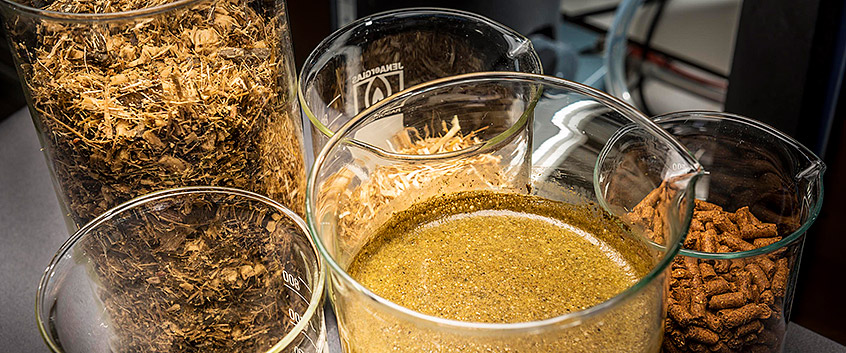
Department of Bioenergy
How far is possible for materials and energy to be supplied from renewable resources in the future? What will be the impact on the environment and what other potential repercussion may ensue? How can we find the balance between the increasing demand for raw materials and the sustainable provision of material and energy? And what knowledge is necessary in order to avoid destabilisation of such future renewable based systems?
Transformation of the resource base offers opportunities, but also presents risks. These opportunities and risks are often determined by the local situation and currently there are many unanswered questions. However, something can only be successful it is available, affordable and accepted by society. Until we begin to answer the burning questions relating to our future renewable based economies, the way to achieving a renewable supply of energy and similarly a bioeconomy will remain unclear and unachievable. One of the key bottle necks is the indisputable argument of the limiting resource of land and space, which is required to supply such renewable resources.
Researchers at the Department of Bioenergy identify and analyse the opportunities that renewable energies and the bioeconomy present for nature, business and society and the impact they might have on them. To do this, we develop and use models and methods for material flow analysis, extended life cycle assessments, technology assessments and geographical information systems in combination with market and environmental modelling. Our research investigates how the various renewable energy carriers can best contribute to a sustainable, decentralised energy supply system and how regional bioeconomy systems can be developed from existing biomass supply networks.
The aim of our research is to acquire a broad understanding of the interactions between sources of renewable energy, technical options for using them, as well as an understanding how these align with the environment and society. On this basis, transparent modelling methods which can describe these interactions are developed. Scenarios for potential future development can be simulated with the different modelling approaches. These are thus used as a foundation for decision-making on sustainable strategies for renewable energies as well as the bioeconomy. The research is conducted in close cooperation with the German Biomass Research Centre (DBFZ), as well with various departments at the UFZ.
Mission:
Background papers:
Cooperation partners:
UFZ-research fields and programms:
Expert reports:
IEA reports:
Targeted analyses and recommendations for action for the establishment of the bioeconomy in various countries but also internationally are provided by the expert reports of the IEA Bioenergy. It was founded in 1978 by the International Energy Agency (IEA). The aim of IEA Bioenergy is to improve cooperation and information exchange among countries that have national bioenergy research, development and implementation programmes. The IEA acts as a policy advisor on energy issues to 28 Member States and the European Commission. The work of the IEA Bioenergy is organised in so-called "Tasks". Through Prof. Dr.-Ing. Daniela Thrän, the UFZ is represented here in Task 40 (Deployment of biobased value chains) as a member and in Task 44 (Flexible Bioenergy and System Integration) as co-leader. The latest publications from the tasks and intertask projects can be found here:
DBFZ reports:
